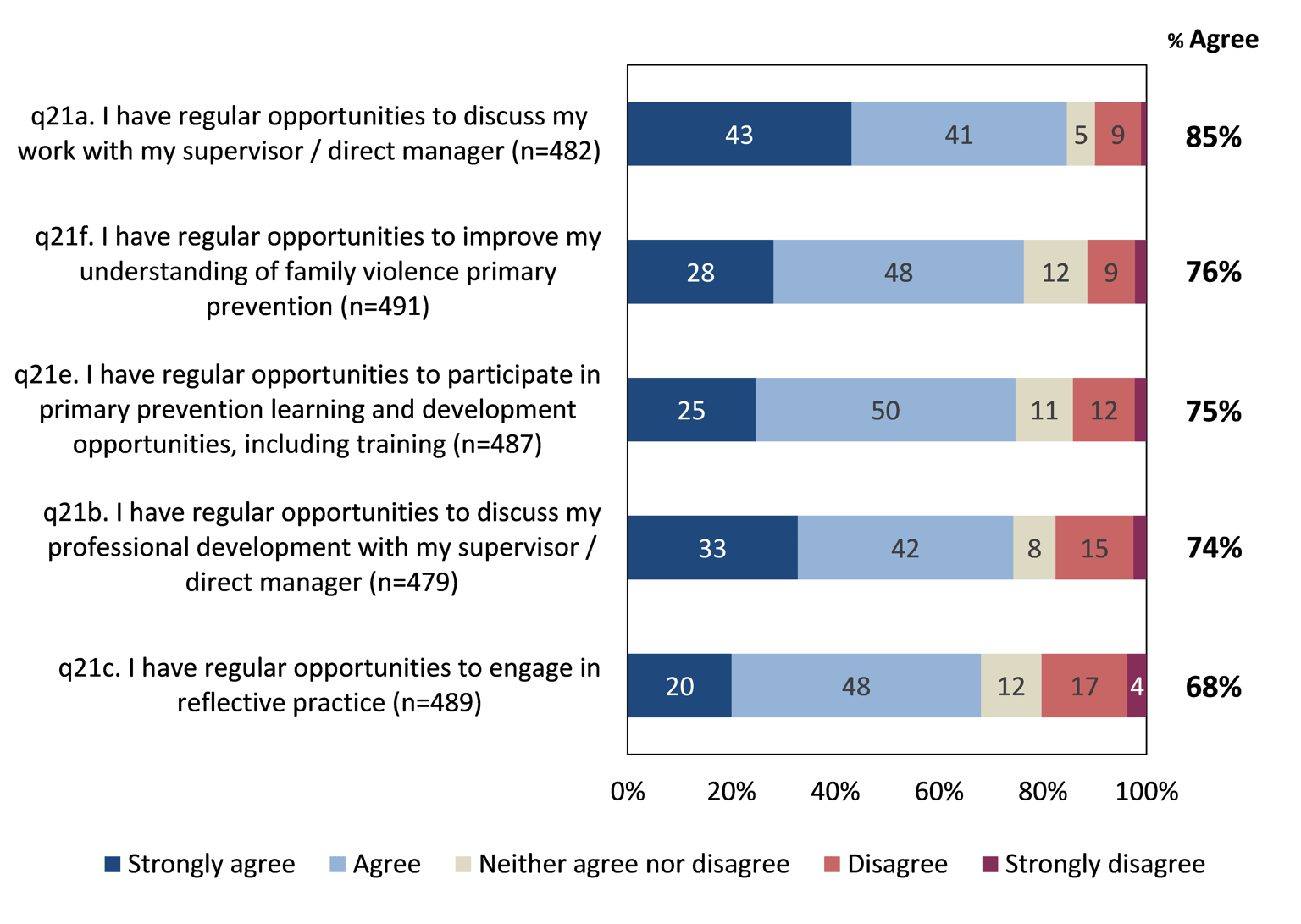Overall, the results indicated that the primary prevention workforce were satisfied with the quality of support provided to them by their supervisor or direct manager, and that having the opportunity to regularly discuss their professional development, or their work more generally, were key drivers of this satisfaction. Subsequent findings suggested that at least half of the workforce did not feel that their role was well understood or valued by others in their organisation, suggesting that some of this workforce may feel under-recognised by their peers.
Overall, the primary prevention workforce was largely happy with the quality of support provided to them by their supervisor or direct manager, with over seven-in-ten reportedly satisfied (72% – see Figure 6).
When asked about a range of more specific metrics associated with the support that their supervisors / managers had provided, 85% agreed that they had regular opportunities to discuss their work with their supervisor or direct manager. Furthermore, around three-quarters of the workforce also agreed that they have regular opportunities to improve their understanding of family violence primary prevention or upskill through participation in training or discussions regarding their personal development (74%-76%).
Although 68% agreed, the workforce was relatively less likely to feel that they have regular opportunities to engage in reflective practice1, with 20% disagreeing that they had such opportunities.
In order to determine what is most important in influencing the overall levels of satisfaction with support provided by supervisors / managers amongst this workforce, regression analysis was undertaken. The results suggest that the key drivers were having regular opportunities to:
- discuss professional development
- discuss work more generally
- participate in primary prevention learning and development opportunities, including training.
Footnotes
- Reflective practice, also referred to as critical reflection or reflexivity, is a process of self-examination by a practitioner about their own work; becoming self-aware, considering their thoughts, feelings and assumptions, and examining how these impact upon their work.
Updated


